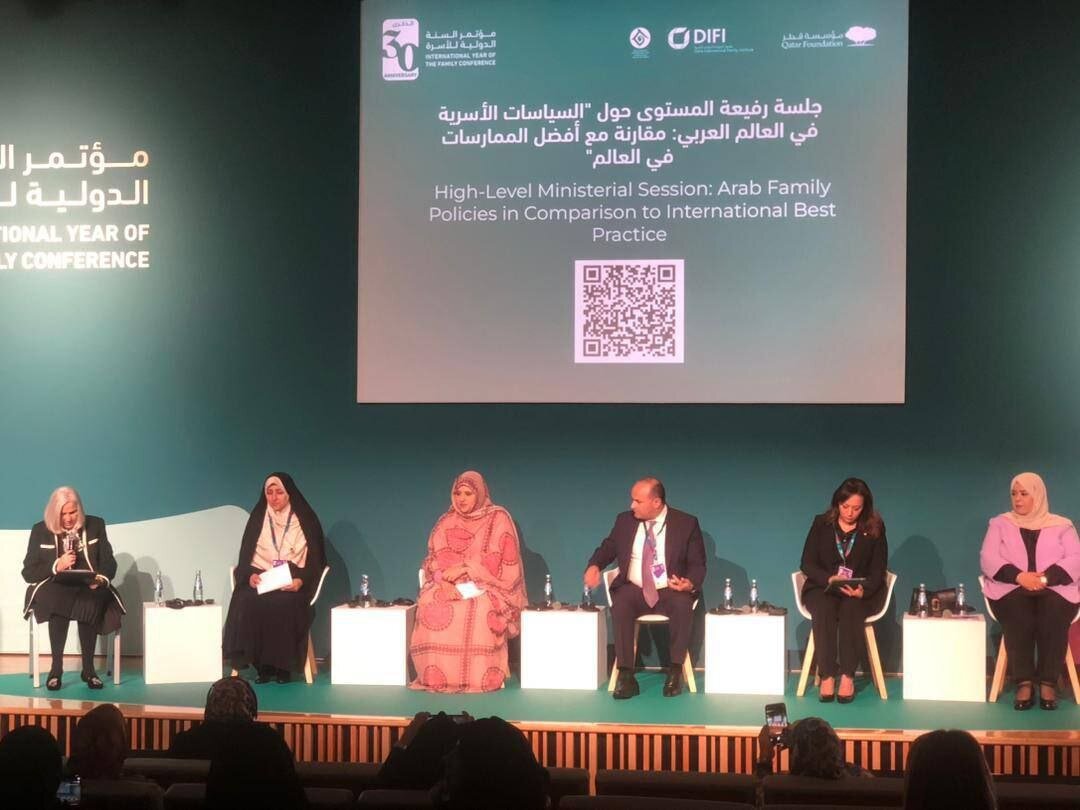Doha meeting VP highlights preserving family values structure
Doha meeting: VP highlights preserving family values, structure
TEHRAN –Acknowledging the pivotal role of the family in making progress, Zahra Behrouz-Azar, the Vice President for Women and Family Affairs has underscored the significance of strengthening the foundation of the family through the preservation of family values and structure.

“Today, families are facing four major global trends bringing about profound impacts on them. These include technological change, demographic trends, migration and urbanization, and climate change, IRNA quoted Behrouz-Azar as saying.
She made the remarks while addressing the High-level Ministerial Session on the sidelines of a global conference on ‘Family and Contemporary Megatrends’ which was held on October 30-31 in Doha, Qatar, commemorating the 30th Anniversary of the International Year of the Family (IYF).
All in all, these trends necessitate special care and attention due to the changes they have made in the daily life, social, and economic structure of families, the official noted.
These changes have challenged the structure of families and affected family relationships as well as the future of the children in different ways.
The official highlighted the importance of national and local strategies along with policy-making in fostering relationships and preserving the family foundation, “what used to strengthen families in the past, in the absence of these programs, were the social values such as respect for elders, solidarity, sacrifice, commitment, and loyalty.
Preserving these values and passing them on to future generations is our duty,” she further noted.
Improving communication skills, resilience, empathy and family solidarity, managing conflict, and resolving crisis, should be put on the agenda. By supporting social-cultural programs and activities, opportunities will be provided for face-to-face interactions of the families.
Moreover, enhancing cultural and sports programs as well as family tourism can reinforce relationships and develop empathy in families, Behrouz-Azar stressed.
Global conference on ‘Family and Contemporary Megatrends’ brought together many policymakers, experts, and thought leaders to explore megatrends including demographic Change, migration, urbanization, technological advancement, and climate change that are affecting the family.
The conference also discussed family-friendly policies, best practices, and strategic partnerships to promote family welfare and social development.
One of the main objectives of the conference was to shape a future in which every family can flourish.
Demographic changes affecting family well-being
This year, the International Day of Family, celebrated annually on May 15, provided an opportunity to reflect on social, economic, and demographic changes that affect the structure and stability of families.
It aimed to raise awareness of how climate change impacts families and the role families can play in climate action.
Climate change negatively impacts the health and well-being of families through increased pollution, while extreme weather events exacerbated by climate change, such as hurricanes, droughts, and floods, often lead to forced displacement and loss of livelihoods for families and individuals.
Such events impact agricultural productivity and access to water, intensifying hunger and vulnerability.
They cause economic disruption in industries sensitive to climate impacts such as agriculture and fisheries.
Empowering families through education, changing consumption habits, and advocacy is critical for meaningful and effective climate action.
Through family and community initiatives, we can foster climate action with education, access to information, training, and community participation.
Families pass values across generations, so instilling sustainable habits and climate awareness in families from an early age is important.
Integrating circular economy principles into early childhood education can help build a sustainable economic model based on minimizing waste and regenerating natural resources. Families as consumers and advocates can drive the transition to a circular economy.
MT/MG
source: tehrantimes.com